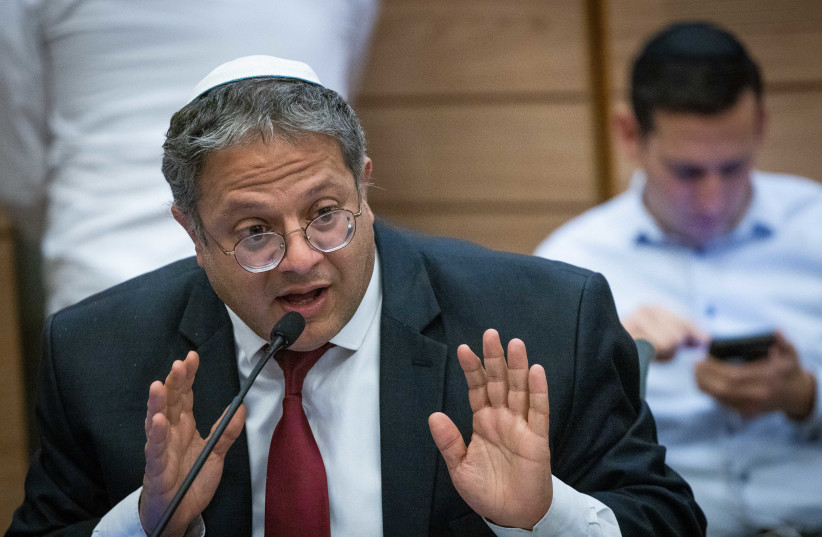Senior members of the coalition believe the government has a secured majority for approving a prisoner release deal, even if ministers from Otzma Yehudit or the Religious Zionist Party oppose it in the vote, especially regarding the release of security prisoners.
In the coalition, it is estimated that the primary opponents are expected to come from RZP and Otzma Yehudit.
“We are very concerned that we will not repeat the mistakes of the past and release murderers,” RZP said. “The rumors are that, once again, the State of Israel is going to make a very, very big mistake as it did with the Gilad Schalit deal.”
Former soldier Schalit, who was captured by Palestinian terrorists in 2006 and held captive by Hamas for over five years, was released in a prisoner exchange deal in 2011 that freed some 1,000 Palestinian security prisoners.
“We remember that when we released Gilad Schalit, we released [Hamas leader] Yahya Sinwar and his friends, and we brought this trouble upon ourselves.”

Religious Zionism: Temporary ceasefire would abandon soldiers
The proposed prisoner exchange deal has also sparked opposition from the RZP. As details of the deal have come to light, the party has voiced its concerns, emphasizing the need to consider Israel’s security, the fate of the kidnapped individuals, and the impact on soldiers.
“We want to see all the kidnapped individuals back home safe and sound with their families,” RZP said. “That is precisely why this is a deal we must not agree to. The military pressure on Hamas is working, and that is why Hamas and Sinwar are now proposing such a deal.
“Hamas is desperate... to reorganize for continued fighting while conducting manipulations and negotiations with the other captives. Therefore, it is necessary to maintain the pressure and ensure the release of all the captives.”
In particular, the RZP is worried about the fate of soldiers if the deal proceeds.
“The remaining captives are what we are thinking of at the moment, including IDF soldiers, where the deal will abandon them to an unknown period, increase the ‘price’ and give Hamas more time to hide and engage in more prolonged resistance against the IDF.”
Otzma Yehudit has also expressed concerns about the deal.
“The current deal could reduce the chances of bringing back the remaining captives, including IDF soldiers,” it said.
Moreover, Otzma Yehudit said the current deal could compromise the efforts of ground forces fighting in Gaza.
“The ceasefire associated with the deal will harm the ground forces fighting in Gaza and affect the military effort.”
Likud Culture and Sport Minister Miki Zohar announced his intention to vote in favor of the deal.
“It is our moral obligation as Jews to bring children back home with their mothers, and therefore, I will support a plan that will reunite them with us as soon as possible,” he said,
“However, we must prioritize the security of our soldiers in the region and ensure that immediately after the ceasefire, the IDF carries out the most critical mission: the complete eradication of Hamas. This is our responsibility towards all Israeli citizens.”
KAN reported that pressure was being exerted by Prime Minister Benjamin Netanyahu’s office on other Likud ministers to support the deal
Shas leader Arye Deri received the approval of the Council of Sages for the agreement and said his party would support the deal.
Jerusalem Post Staff contributed to this report.
